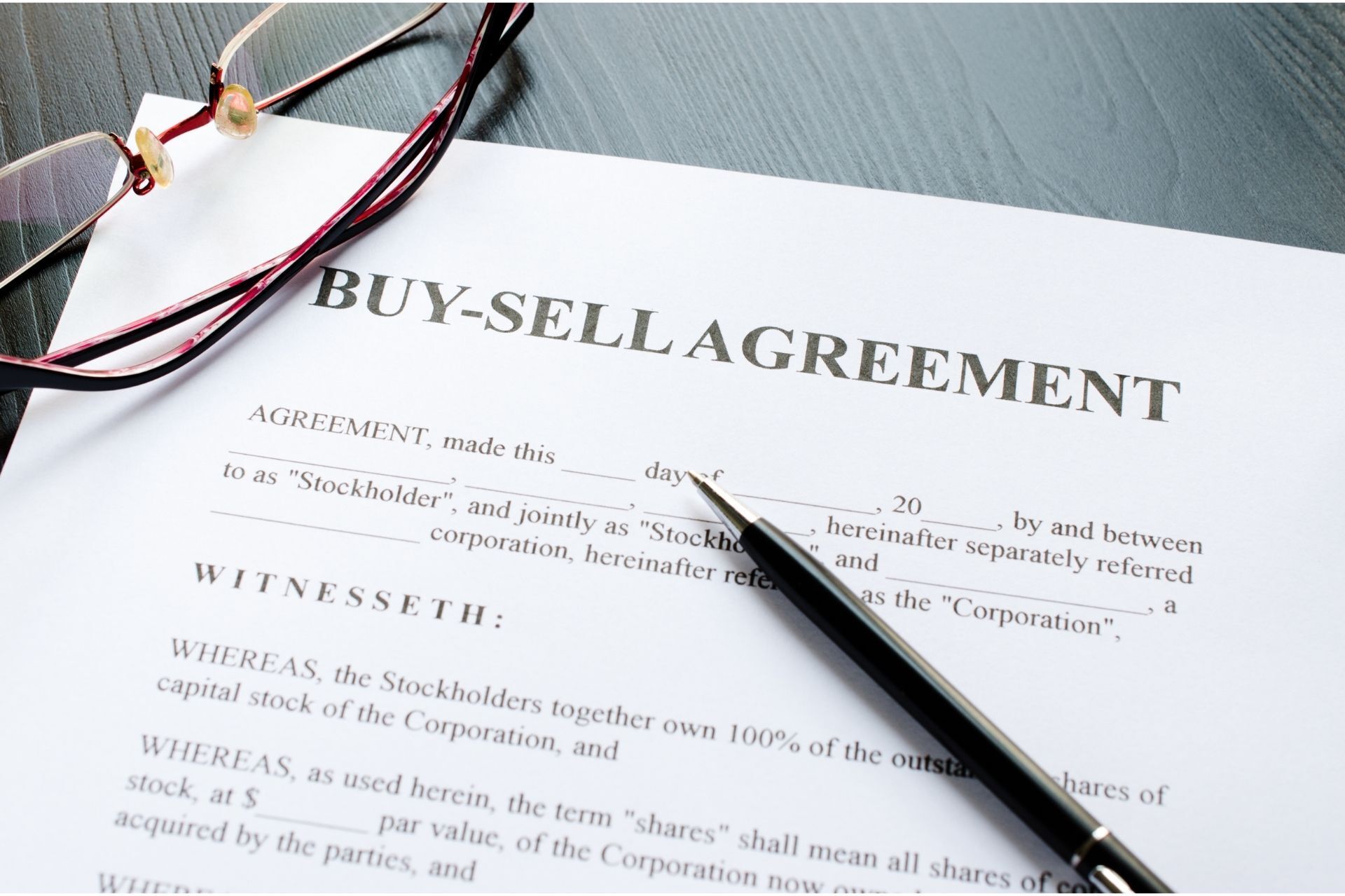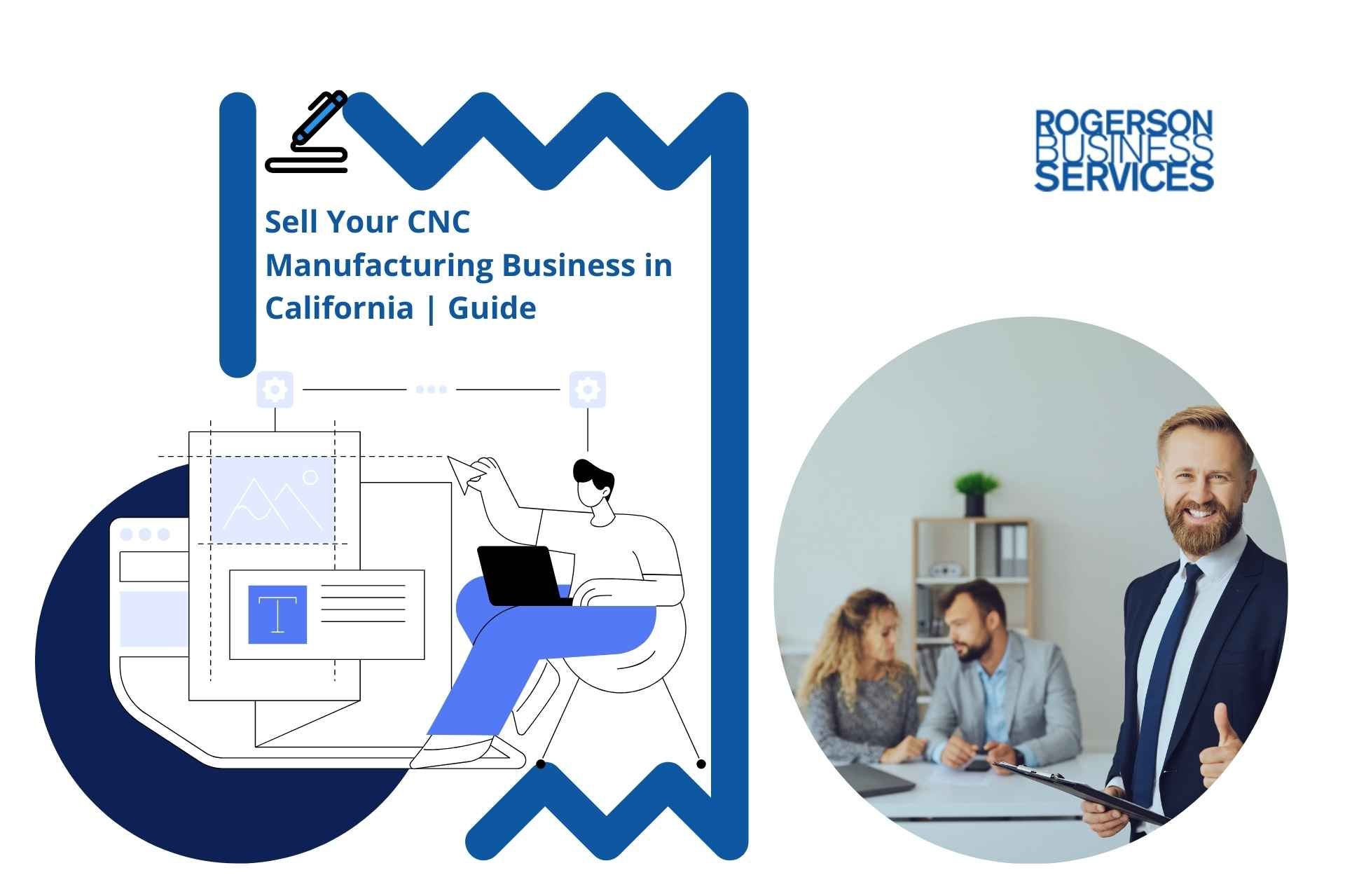How a Buy-Sell Agreement Can Save California Businesses
Understand Buy-Sell Agreements in California

If you are a sole proprietor of your business, a single member LLC or the sole shareholder of your corporation there is one problem you do not have to worry about and that’s a buy-sell agreement for your business. The reason you don’t have to worry about a buy-sell agreement is that you have 100% control of your business and are able to make any and all decisions concerning its operation and this includes when and if you decide to sell your business.
Recently I was working with three tech entrepreneurs from California who put together a very impressive IT business that was generating annual revenue of over $1.2 million. They had started their company some 5 years earlier and when they started, were not even sure if their company had a future or the direction it was going. Like all true entrepreneurs, they were able to adapt and change and as a result, attract new clients and new contracts and establish a credible brand name that is able attract more business.
Their success came from hard work. They each brought different skills and at times the growth was so fast, they had to hire help to deliver their projects, manage their company and get the job done.
One aspect they didn’t consider was what to do now they were getting older and were each deciding they would not mind going in a different direction. The problem wasn’t that the business wasn’t successful, as it was incredibly successful. The problem was that their personal lives were changing as one had moved out of Sacramento to San Francisco and so wasn’t as readily available to meet with employees, contribute to the ownership and management demands of the company plus he was getting frustrated as he was seeing new opportunities where he was working.
Another partner was living in Sacramento but he was burned out by the demands of his customers who required more than 40 hours a week of his time just to take care of their business leaving no additional time to also contribute as a shareholder, manage and operate the business.
The second partner living in Sacramento was aware of more and new business opportunities. This was frustrating to him as he saw a great business opportunity but it meant doing more work and sharing the success with his other partners but they were limited with what they could contribute.
The result of the above was that the three owners of the business were each feeling a different pressure as two of the partners wanted to sell and move onto new things in their life while the third wanted to keep things going as the success and money was what he wanted.
It was with this mixed scenario they met with me to discuss their options. The two partners that had an interest in selling didn’t want to leave their third party high and dry. However, how they were making shareholder and owner decisions wasn’t working and the solution wasn’t clear.
What is self-evident from the above is that a lot of the frustration and distraction they were currently experiencing could have been handled so much better with a buy-sell agreement in place when they first came together as partners or shareholders.
It is very easy both legally and practically for two or more unrelated parties to come together in business and create a partnership or corporation with two or more shareholders. Often one party will bring money and the other will bring expertise. The reason that brings two or more people together in business does not matter; what matters is putting an agreement in place when there is no tension in the relationship about what will happen when the business changes and the core reason that brought the parties to work together.
A good buy-sell agreement will normally be unique to each situation and should be written by an attorney. It needs to be unique as it will depend on the number of people coming together, what they bring in time and management, probably the industry you are in and any special needs it requires and more. For example, it is common for partnerships to form in the construction, real estate and services industries. A buy-sell agreement would need to reflect the needs of those industries including how one party moves in and out. Click this link if you would like to see a Buy-Sell Agreement Sample.
A final topic to be aware of is tax. There are tax implications of assets when they come together in a partnership or corporation. There are also tax consequences when one party leaves and the partnership continues but there are different tax consequences when the partnership or corporation is liquidated. It is critical that proper tax records are kept from the time the company is formed and who makes what contribution so the tax consequences are clear later.
If you would like more information about
selling a business
or a related service such as
valuing a business, we are here to help out with a well
qualified M&A deal team.
Hey there! Can we send you a gift?
We just wanted to say hi and thanks for stopping by our little corner of the web. :) we'd love to offer you a cup of coffee/tea, but, alas, this is the Internet.
However, we think you'll love our email newsletter about building value and properly position your company before transition/exit your business ownership.
As a special welcome gift for subscribing, you'll also get our helping and educational guides, tips, tutorials, etc.. for free.
It's filled with the best practices for retiring serial business owners like Dan Gilbert, Larry Ellison, Warren Buffett, and many more.
Just sign up for our emails below.


